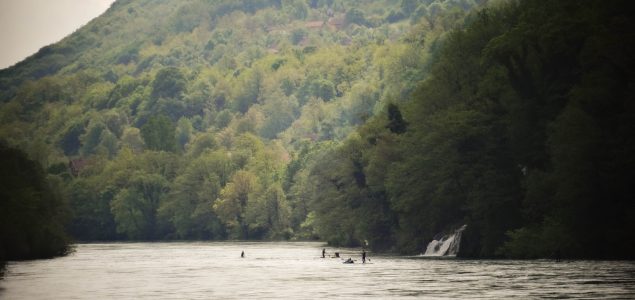Western Balkans will seek effective protection of its unique and wild rivers in Sarajevo
Povezani članci
- Borjana pushed her brother into the election committee in Livno, and support to the most beautiful aunt will also be his two daughters
- WWF: Evropljani od danas žive na “ekološki dug”
- Ledeni prst smrti – rijedak prirodni fenomen
- TK Prosecutor’s Office Investigates Years of Radiation of Oncology Patients with Faulty Devices
- МОЖЕ БЕЗБЕДНО И МНОГО ЈЕФТИНИЈЕ!
- Pomor ribe u Neretvi zbog izlijevanja otpadnih voda s deponije Uborak

An international conference ‘Legal and practical tools for protecting the rivers of the Western Balkans and their people’ organized by the non-governmental organizations Arnika (Czech Republic), the Center for Environment (Bosnia and Herzegovina), and WWF Adria, financed by the European Union, the Transition Promotion Programme of the Czech Republic, Global Greengrants Fund and the Heinrich-Böll-Stiftung, will take place at the Hotel Grand Sarajevo from November 27th to 29th.
This conference is a reaction to the continuous damming of wild rivers across the Western Balkans. According to experts from the Center for Environment, about 2,700 dams have been designed in the region.
The legal and practical tools for the protection of the rivers, such as the European network of protected areas Natura 2000 or the Aarhus Convention on environmental democracy, will be the main topics of the Sarajevo gathering, which will host environmentalists and activists together with governmental and regional representatives. The goal is to find a mutually agreed conclusion on effective river protection, as many Western Balkan countries lack efficient legislation and don’t conform to international standards.
“Private companies invest money and gain profit, while people give away resources and receive no benefits, but only major environmental damage and financial losses through taxes and subsidies on renewable energy sources turned to the profit of private companies. Thus, our jewels of nature are threatened by an uncontrolled and non-transparent boom of hydropower plants. Over 300 unnecessary dams are planned to block 244 rivers in Bosnia and Herzegovina alone,” alerts Viktor Bjelić, vice-president of the Center for Environment.
According to the WWF Adria lawyer Đorđe Stefanović, the solution is not difficult: “Politicians must adopt and apply rules on minimum river flow and its monitoring and ensure public participation in decision-making processes. The situation varies throughout the region and each country may apply a different approach. However, the results and problems are the same – one by one, the uniquely beautiful rivers across the Balkans get destroyed and simultaneously the ambient ecosystem, including the local people, who are being robbed of their water sources,” he explains.
“The speakers who are attending have years of experience with data monitoring, access to information, and European directives on nature protection,” states the conference organizer from Arnika, Zuzana Vachůnová. “We want to utilize the international know-how to seek synergies and come up with specific steps for the protection of the rivers and the people who depend on them. They fight bravely for their natural heritage and during the conference, they will share their impressive and inspiring stories,” she concludes.


 ENG
ENG





























